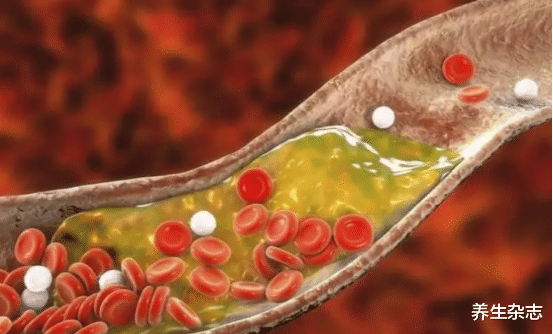Introduction: With the rapid development of the economy and the increasing pace of life, people’s dietary and lifestyle habits have undergone earth-shaking changes, leading to an increasing number of people suffering from high blood lipids.
Once the blood lipids remain high for a long time, it is easy to make the blood thicker and thicker, thereby accelerating blood vessel blockage, prone to the formation of atherosclerosis and thrombosis, easily triggering fatal diseases such as cerebral infarction, cerebral hemorrhage, and myocardial infarction.
Case: Mr. Liu, 35 years old, currently works as a project manager in a construction company. With irregular work and entertainment drinking habits, he developed high blood lipids at a young age. Even though he was aware of his condition, he did not take it seriously and continued his lifestyle as usual.
Recently, Mr. Liu collapsed suddenly after socializing and was rushed to the hospital for emergency treatment. It was diagnosed as acute cerebral infarction caused by high blood lipids, but fortunately, timely treatment saved his life.
Doctors remind that two bad habits are the “culprits” of elevated blood lipids, and it is crucial to improve them early:
1. Greasy diet:
Mr. Liu often consumes greasy meals in the project department and indulges in rich food during social events. Persisting in a greasy diet habit continuously raised his blood lipids.
This is because a greasy diet results in a large amount of fats and calories turning into fat deposits in the body, significantly increasing blood thickness and the risk of obesity, hindering normal metabolism, accelerating blood vessel blockage, and increasing the risk of cerebral infarction.
2. Alcohol consumption:
Mr. Liu is frequently involved in social events and also enjoys drinking alcohol excessively, leading to a severe intake of alcohol. Long-term heavy drinking seriously impairs normal metabolism, reduces the body’s ability to eliminate fats and vascular waste, and accelerates blood vessel blockage.
Moreover, alcohol is damaging to vascular tissues, accelerates vascular lesions, and increases the risk of cardiovascular and cerebrovascular diseases.
“Eating one bite is better than eating eight apples,” says the chief of cardiology: High blood lipid individuals should persist in consuming, ensuring unobstructed blood vessels.
Everyone knows that apples contain apple polyphenols, which can effectively reduce triglyceride levels in the blood and have a lipid-lowering effect. However, apples have limited nutritional components, coupled with individual differences in digestion capabilities, solely relying on apples to lower lipids is not very realistic.
Compared to apples, lipid-lowering nutrients can achieve twice the effect with half the effort. For instance, “Pubes Double Element,” composed of over ten natural ingredients such as kudzu root, ginseng, cordyceps, cinnamon, cassia seed, and tianbei powder, is the optimal choice for decreasing blood lipids and protecting blood vessels.
Tianbei powder: It contains tianbei kinase and peptides, with antioxidant elements that effectively slow down vascular aging, enhance metabolism, accelerate the excretion of fats, and reduce blood lipid levels.
Cordyceps: It contains cordycepic acid substances that effectively inhibit the production of low-density lipoprotein and cholesterol, thereby reducing blood thickness and clearing blockages in blood vessels.
Ginseng: It contains ginsenosides that activate phospholipase in the body, preventing atherosclerosis.
For individuals with high blood lipids, it is beneficial to supplement two capsules of “Pubes Double Element” daily to help clear vascular waste, lower blood lipids, prevent complications such as cerebral infarction, and more.
In addition, adhering to two key practices is crucial in lowering lipids:
1. Controlling body weight:
Studies show that obesity is an important factor leading to high blood lipids. Because obese individuals have more fats and slower body metabolism, exacerbating the likelihood of elevated blood lipids. Therefore, to stabilize blood lipids, it is essential to control diet and engage in regular exercise to maintain an ideal weight.
2. Healthy eating:
People with high blood lipids typically have slower metabolism, so they must follow healthy dietary habits. It is advisable to reduce the consumption of high-salt, high-fat, high-sugar foods and prevent the elevation of blood lipids from the source.
It is recommended to maintain a light diet, consume lean meats such as chicken, fish, shrimp, and eat plenty of high-fiber vegetables and fruits like celery and apples. Accelerating the body’s metabolism and stabilizing blood lipids have a positive impact.
Bonus Tip: For individuals with high blood lipids, apart from the above points, maintaining a regular daily routine is crucial. Avoiding staying up late, ensuring sufficient sleep time, promoting body metabolism, and aiding in lowering blood lipid levels.


